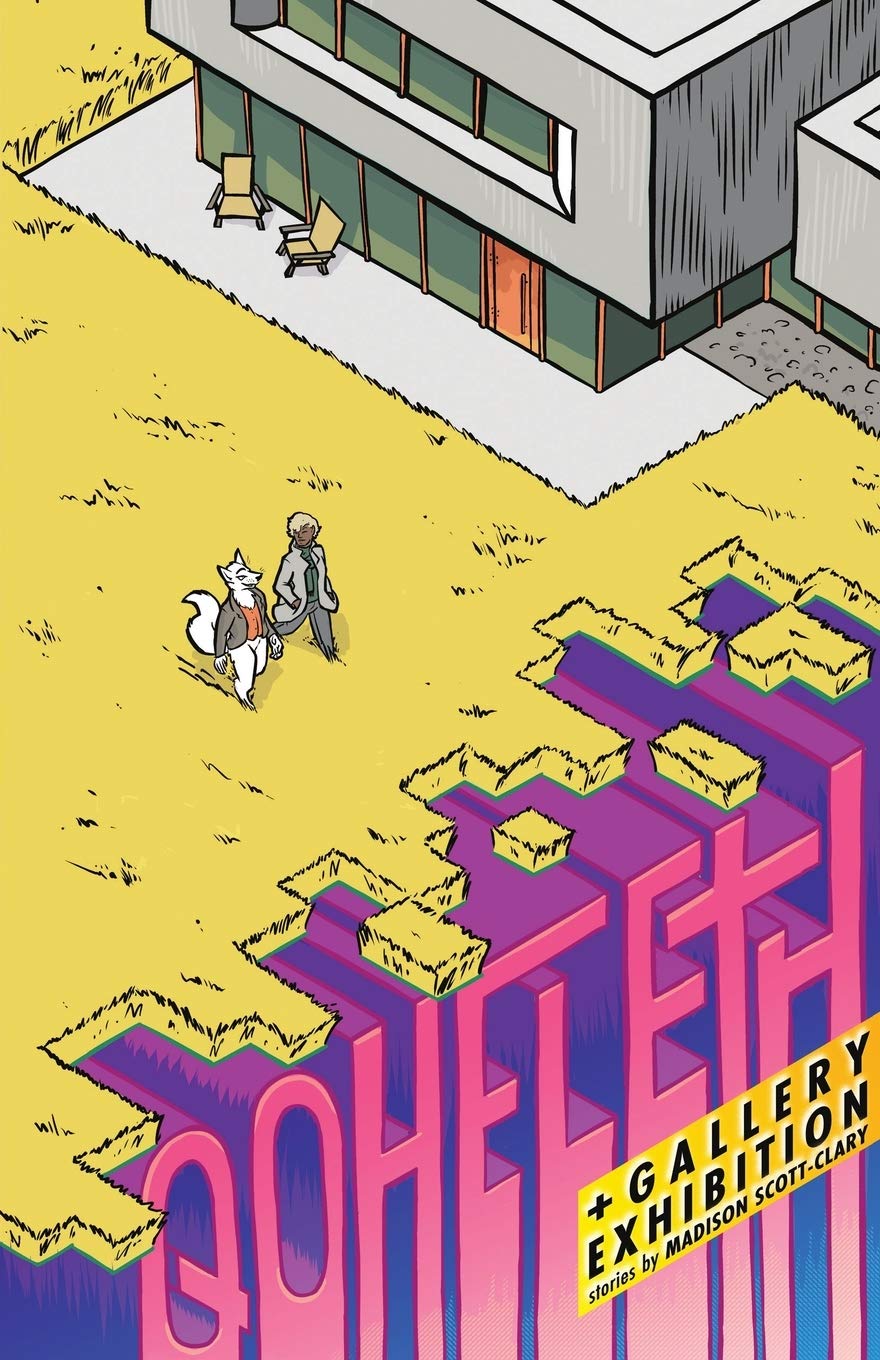Review by Domus Vocis
It’s one thing to read furry fiction, but it’s another to read fiction that has a furry character in it. Well, not a anthropomorphic character per se, but a human protagonist who’s also a member of the furry community. Such is the case of “Qoheleth” by Madison Scott-Clary, who takes such an idea and explores a futuristic world based around simulation technology and how it affects one’s sense of identity.
In the world of the novella, “Qoheleth”, RJ Brewster is a non-binary human (pronouns are ey, eir, em) who works as a lonely technician for an interactive theater based in London in the year 2112. When ey isn’t working at the theater or taking care of eir cat at eir flat, RJ journeys to the World Wide Web as eir furry avatar, a fennec fox named AwDae, where ey spends time at the virtual Crown Pub with various anthropomorphic friends. However, things begin to change eir unassuming life when an acquaintance disappears and is designated as ‘lost’, or people who become trapped in cyberspace for an unknown reason that leaves their body almost brain dead, with no idea where their consciousness has gone. And out of nowhere, RJ finds emself suddenly becoming one of the lost, trapped in eir virtual fennec fursona during a rehearsal.
Meanwhile, in the year 2305, an uploaded historian named Ioan is hired by a mysterious online furry to catalogue a group it is a part of called the Odist Clade. Unfortunately, saying anything more would lead to spoilers and unexpected twists that would ruin the unique experience Madison Scott-Clary has crafted. And these characters are well-crafted and incredibly likable as they try to navigate through technological uncertainty.
Personally, my favorite character to follow is Dr. Carter Ramirez (pronouns are she, her, hers), a scientist at University College London who is tasked with studying the lost phenomenon and trying to figure out where their minds have gone and what exactly is causing it. Her considerate yet straightforward personality desiring to know the truth though helps pull the reader further into the mystery behind the lost. Even with all the power she has though, Carter is very frustrated of the very little data her team is getting and even some redactions and bureaucracy getting in the way of helping the hundreds of lost.
What Madison Scott-Clary has is a decent mystery (I thought it was incredibly clever and relevant to the plot how ‘Qoheleth’ works in the title) set in an intriguing post-cyberpunk world with wonderful ideas of identity and existentialism to explore. These range from direct democracy voting on tablets to an unseen Cold War between East and West, not to mention secretive groups dedicated to famous writers or poets, the latter of which even rename themselves after lines or stanzas from their works. There’s also the ability of digitally uploaded people to ‘fork’, or create copies of themselves, literally forming branches of clones of an uploaded person.
What makes “Qoheleth” work for the most part is how the author’s writing describes being in a virtual reality simulation as well as being trapped in said simulation. It is a kind of existential dread and horror talked about but not explored as much as it could be. At one point it can feel amazing and limitless but the next moment, you feel trapped by something you easily took for granted. The reader easily connects and empathizes with RJ/AwDae as ey try to make sense of eir artificial surroundings and the cosmic, otherworldly terror of being stuck in a virtual world a la The Matrix. It is especially fascinating to see how ey switches between embracing eir new limitless (yet isolated) existence and trying to find a way out, while reflecting on eir life before becoming lost. In fact, RJ Brewster’s chapters serve as an excellent example of a great character study.
The element that will divide readers the most will have to be the ending. Even though were plot points are resolved and we do know the fates over the main characters, The novella still leave so much to be desired.
Not all of the mystery is explained and neither is some of the more interesting aspects of the world building that the author could have expanded upon.
Fortunately for me, “Qoheleth” has just enough intrigue and colorful ideas to keep moving on to the next page. If readers have the chance, they must also read “Gallery Exhibition” attached to the novella, which connects to the side story happening in 2305 and does expand on more of the aesthetic lore of the virtual world. Should Madison Scott-Clary write a sequel or a connected side project in the future for “Qoheleth”, there is no doubt it will be as equally mesmerizing and thought-provoking with likable characters and a setting with much potential to explore, if not more so.
